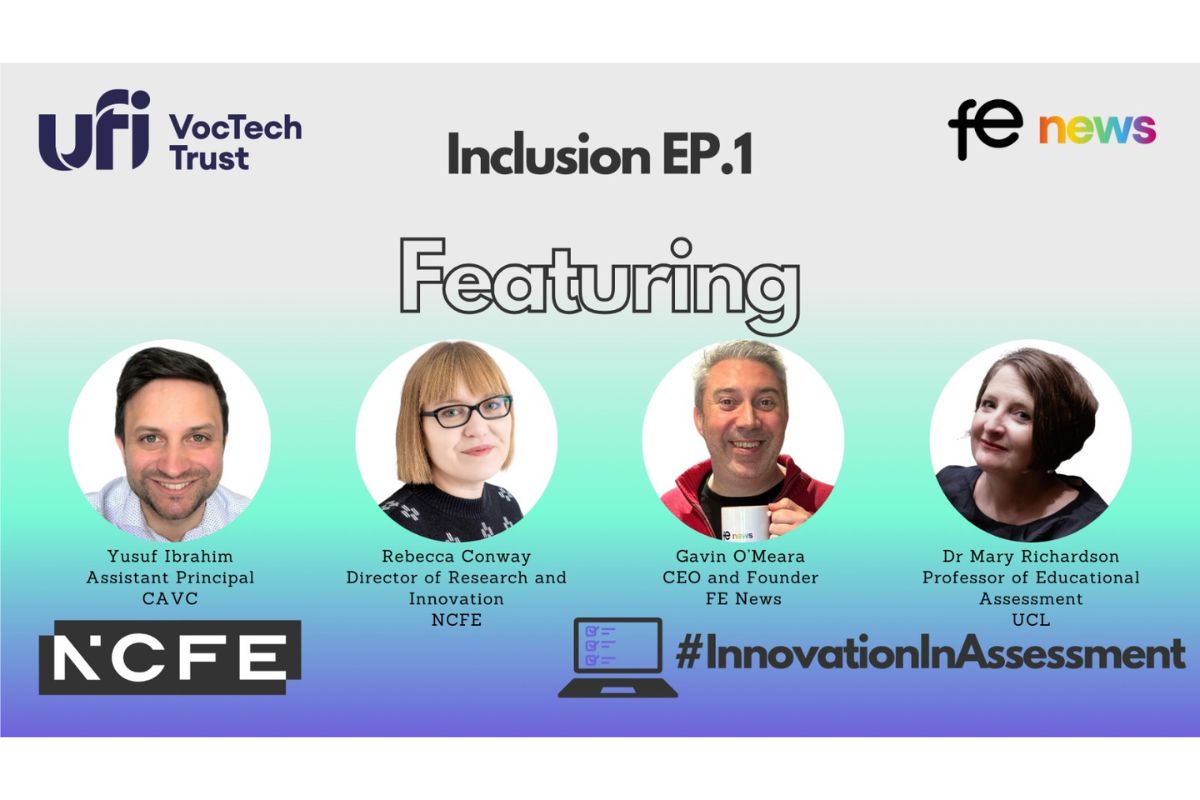Classroom meets cloud: how blended learning creates the perfect concoction for better learning

Steven Hope, head of independent learning @LeedsCityColl, explores how blended learning creates the perfect concoction for better learning:
“Blended learning” became a common term during the coronavirus pandemic, with many educators adapting to a new way of working which fused traditional classroom methods with online education. However, even before the pandemic, the need for blended learning was evident, with increasing demand for online resources and interactions. This dynamic approach is key in providing diverse learning experiences.
Colleges will need to update their learning frameworks and complete a new analysis to understand how previous processes may not have been conducive to outstanding learning. While the ongoing pandemic continues to disrupt traditional classroom learning, creating a robust blended learning strategy will require effective schemes of learning and efficient investment in digital infrastructures.
Digital platforms
When embedding blended learning into a college’s framework, a high-performing digital platform is vital. The Google Suite acts as a one-stop shop for teaching, learning and interacting.
Feeling part of a community and learning from each other is incredibly important for developing better learners; we often forget that when students are in the classroom, they will be having regular conversations and obtaining peer support as standard. Therefore, educators must ensure that when planning the delivery of an online session, they have built in a mechanism to do just that. This is often done effectively through Google Classroom, allowing students and teachers to communicate, set assignments and provide feedback. The recent Learning in a Changing Landscape Report showed that only 34% of surveyed UK students felt actively motivated whilst learning from home, however gaining real-time feedback had a lot of merit, highlighting the importance of such interactive platforms.
Providing pastoral support during remote learning is essential for students’ wellbeing and engagement. Many students’ home environments can be challenging and not having an anchor of support can affect their mental health. Not to mention, the added pressure of learning during a pandemic, with 80% of respondents of the Young Minds Summer 2020 Survey agreeing that the coronavirus pandemic had made their mental health worse. Platforms such as Google Meet or Google Hangouts allow teachers and students to regularly interact, acting as a pillar of support, and allowing them to access pastoral care if necessary.
Accessibility challenges
Adopting a blended learning approach requires a comprehensive analysis of learners’ digital accessibility in order to identify the gaps and support where possible. As part of an induction, all students must be assessed to ensure there is equality and fair access to learning for all. This allows colleges to be fully aware of the situation regarding access to a device, connectivity and home learning environments. This information can then inform departments and college-wide decisions on investment for student devices, along with connectivity issues. The assessment should also include where in the home they will do their learning. These assessments are vital to ensure that when delivering learning in a blended approach, students have the tools to be able to do so.
Another way to tackle digital accessibility is through Independent Learning Zones. At Leeds City College, we introduced our first zone in 2016, providing spaces outside of traditional classroom environments, where students can access devices and learn with support to make progress. These zones are dotted around campus and allow students to do homework and develop skills. Outstanding learning is encouraged through Independent Learning Zones, as students can make progress at their own pace and develop valuable analytical skills, such as critical thinking.
Schemes of Learning
To develop an effective blended learning strategy, Schemes of Learning must be adopted, in the same way it’s used with face-to-face learning. When planning, it’s key for teachers to identify clear intentions of how they will assess the extent to which learning and progress has taken place, as well as how they will provide feedback.
It’s important for the method of delivery and session by session outline to be considered and include a mixture of face-to-face, synchronous learning, which takes place at the same time through live or interactive sessions and asynchronous learning, in which sessions are pre-constructed or recorded and learners can access at a time suitable for them. These three factors create strong building blocks for exceptional learning by fusing active discussion and immediate feedback with flexibility and reflection.
As we shift towards a more blended approach, it is evident that many teachers and assessors feel they lack sufficient technical expertise. The Association of Colleges and Jisc conducted a joint research project to gauge responses about the recent shift to online learning and teaching as a result of lockdown. The results showed that 49% of staff said they were concerned they would not be able to deliver the quality of teaching they expected themselves, stressing the need for digital professional development and coaching for staff.
As with all teaching, learning and assessment, the quality of teaching is paramount to ensure exceptional student outcomes. Colleges must commit to the continual development of a workforce around their digital skills entitlement and the value that holds in the industrial strategy. A clear vision is needed, ensuring all practitioners have extensive professional development which is tailored to them, their starting point and career stage, which in turn allows their use of digital technologies to enhance learning.
Student responses
While transitioning to an all-digital setup during lockdown, Leeds City College found that in March, 64% of students were highly satisfied with the online learning experience and 62% of students felt highlighly satisfied/satisfied that they were making progress during the move to online learning.
It is however important to identify the gaps when adjusting to a blended approach. Of those who were highly dissatisfied with the progress they were making with their learning whilst working remotely, 33% of these were Black, Asian and Minority Ethnic students; demonstrating the importance of assessing digital accessibility and providing sufficient academic and pastoral support for students. Since then, we have been working with learners to raise this figure and plan to gather additional data to check progress and assess whether this has improved.
Jisc’s Learner Digital Experience Insights Survey 2020 noted that 76% of learners rated the quality of digital teaching and learning on their course as ‘good’, ‘excellent’ or ‘best imaginable’, further demonstrating the value of the digital investments colleges have been making.
However, the survey also revealed the need to support students in developing their digital skills. We must avoid assuming that all learners are confident with the digital tools and platforms they are using, and instead actively help students develop their digital skills.
It’s no doubt that the coronavirus pandemic has changed the way we teach and learn, however it has also made way for a new age of technology-enhanced education. Having time to reflect on blended learning practice, the further education sector must evolve and adapt to a refreshed framework. As part of this, we must strongly focus on staff development, enabling staff to develop their skills, knowledge and confidence. At Leeds City College, we nurture and enhance this through one-to-one coaching and bespoke training. We take a stranded continued professional development approach, which is based on staff member’s experiences of using technology in and out of the classroom and online delivery of teaching and learning. This way, all teachers are supported to improve their practice.
We must focus on inspiring students to become better learners by encouraging outstanding practice through active, blended education.
Steven Hope, Head of independent learning, Leeds City College











Responses